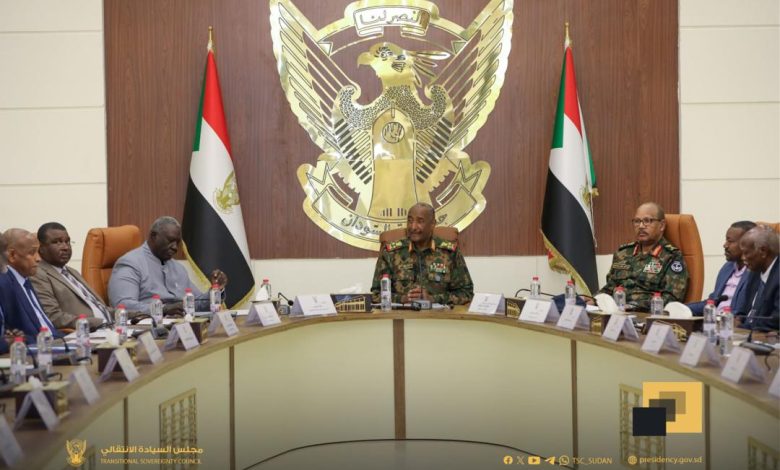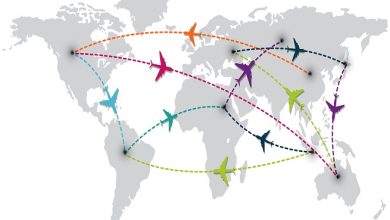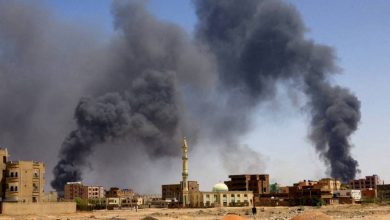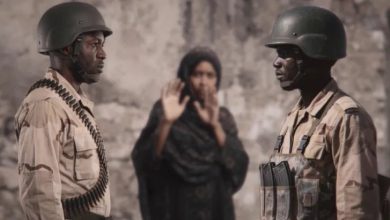
After 22 days of coming into effect, the joint meeting of the Sovereignty Council and the Council of Ministers, chaired by the Chairman of the Sovereignty Council and Commander-in-Chief of the Armed Forces, Lieutenant General Abdel Fattah al-Burhan, on Wednesday approved the state’s general budget for the year 2025. This is the second budget since the Sudanese army entered into a war with the Rapid Support Forces militia.
For the second time in a row, the budget was approved without details, without presenting expected revenue and expenditure figures, and without reviewing the performance of last year’s budget, as has been customary in previous years. The budget was approved amid obstacles and challenges due to the political and economic conditions surrounding the country.
Finance and Economic Planning Minister Dr. Jibril Ibrahim said in a press statement that the 2025 budget was approved in light of the significant challenges facing the country. He pointed out that this is an unconventional budget, announcing that it carries great prospects, notably significant spending on supporting the war effort and funding humanitarian work, health, education, and the restoration of basic services to citizens. It also allocates sufficient resources to support refugees, internally displaced persons, and provide essential services to citizens, in addition to supporting government units.
He expressed hope for increased revenue through expanding the tax and customs umbrella, noting that the budget included the return of state employees’ salaries by 100%. He added that the budget aligns with the citizens’ needs given the current circumstances in the country, emphasizing his ministry’s focus on stabilizing macroeconomic indicators and alleviating citizens’ suffering without increasing inflation and the depreciation of the exchange rate. He also mentioned, “We aim to obtain additional resources from regional and international financial institutions,” adding that there have been promises from the World Bank and the African Development Bank in this regard.
Economic affairs journalist Abdel Wahab Jumaa stated that the issue of revenue will be one of the biggest problems facing the budget in light of the war economy, in addition to increased spending on services like health and education amid the destruction caused by the militia to many service-providing facilities, coinciding with the deterioration of the infrastructure affected by the war and two years of lack of maintenance.
Jumaa, in an interview with Al-Muhqiq, explained that the obstacles to implementing the current budget are numerous, with the main ones being liquidity shortages and the lack of expansion in electronic payments due to the absence of banking application integration and the weak telecommunications network. Electronic payment is the most important means of government revenue. He also pointed out that the reliance will be on taxes and customs as has been the case since the separation of the South in 2011, indicating that inflation will be the monster devouring the budget’s provisions, and the exchange rate’s rise will have a significant impact.
He noted that the budget will lack the remittances from Sudanese expatriates who send money to their families and refugees outside Sudan, which was one of the main sources of foreign exchange, in addition to taxes and customs. Furthermore, the budget will miss foreign direct investment, a source of foreign currency due to the war conditions.
For his part, economist Dr. Haitham Mohamed Fathi said the government should focus on the budget’s program, particularly on security and people’s livelihoods, and provide services that meet citizens’ needs, while opening doors wide for national investors in various fields, facilitating their work, and supporting production and productivity.
Fathi, who spoke to Al-Muhqiq, called on the budget to address delayed wages for employees, address service needs, and focus on people’s livelihoods. He also urged activating cooperative societies and involving the private sector in commercial banking and financing, employing a significant number of graduates in jobs to combat unemployment, support youth and women, and provide them with productive tools to contribute to national income. He also emphasized broadening revenue sources and combating poverty and unemployment in stable and secure areas.
He noted that the war has caused almost complete paralysis in the production sectors, leading to a decline in revenue with an increase in required spending to cover military operation costs. Exports have fallen while imports have risen unevenly.
He explained that the war has led to instability and the flight of billions of dollars from Sudan to abroad, alongside a significant increase in inflation due to the war, leading to stagflation, a common economic ailment during wars and crises. This situation has been accompanied by rising prices of goods and products, with weak demand for them.
Fathi urged the Ministry of Finance to find a definitive solution to all these economic problems and fulfill citizens’ aspirations, meeting their basic needs in education, health, and the provision of clean drinking water, as well as achieving security and stability. He commended the government’s efforts over the past years since 2019 to increase the general treasury’s revenues through various means to cover the deficit.
Haitham emphasized that there are no loans or grants confirmed as of now, making it essential to rely on self-generated resources and to increase revenues through effective collection efforts. Expanding the tax umbrella is a crucial matter that can help increase revenue while reducing tax evasion, which would have a positive impact on revenue collection.
Source: Al-Muhqiq



